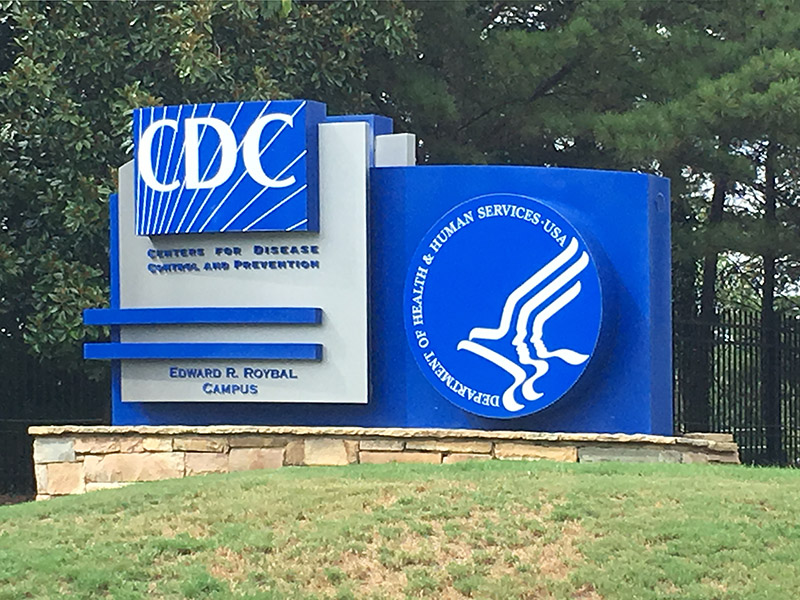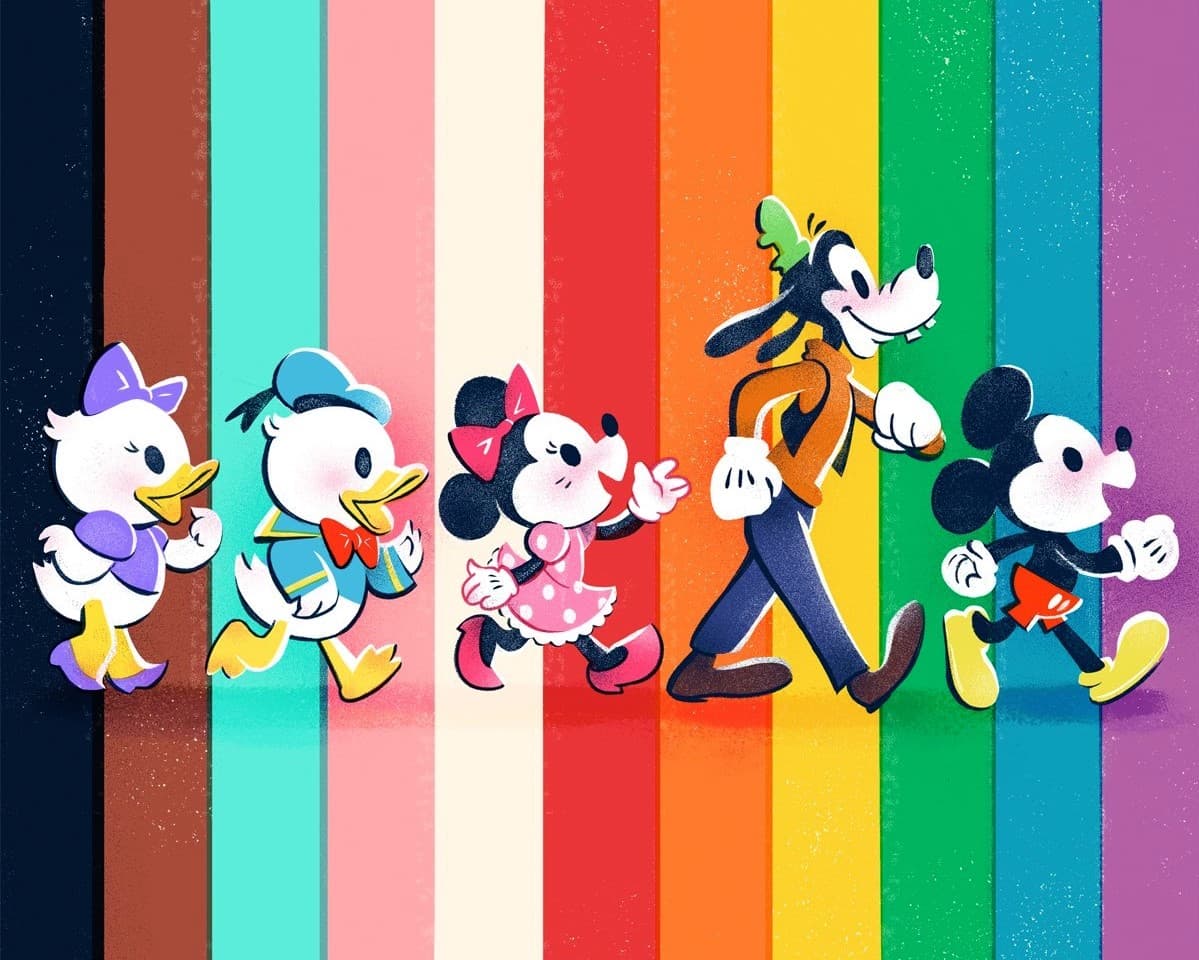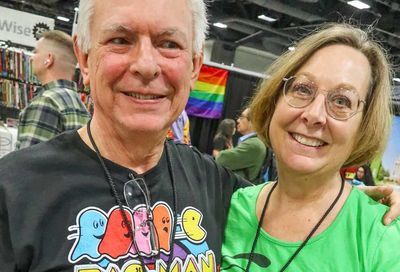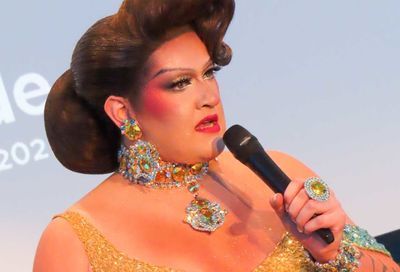HRC Foundation and UCLA to host 2020 Democratic presidential candidates forum
Forum will give presidential contenders a chance to outline how they plan to promote LGBTQ equality

The Human Rights Campaign Foundation and the UCLA Luskin School of Public Affairs will co-host a forum for 2020 Democratic presidential candidates later this fall.
The forum, set to take place on Thursday, Oct. 10 — on the eve of National Coming Out Day — at UCLA’s historic Royce Hall, will give presidential contenders an opportunity to speak about their platform as it applies to LGBTQ issues and their plans to advance equality for sexual and gender minorities.
In accordance with Democratic Party rules, only those candidates who have received 1% or more of the vote in three separate national polls, or have received donations from more than 65,000 different people in 20 different states will be considered eligible for participation in the forum.
The forum is part of UCLA’s Luskin Lecture Series, which encourages public discourse on topics relevant to the betterment of society and demonstrates the school’s commitment to fostering innovative and creative solutions to public policy challenges.
“The Luskin School of Public Affairs is dedicated to enhancing the well-being of all Americans through an informed electorate and educated social leaders,” Gary Segure, the dean of UCLA Luskin, said in a statement. “We are beyond excited to partner with the Human Rights Campaign in raising LGBTQ issues and the policy stances of candidates to greater public attention in this cycle. UCLA is the perfect host for this conversation.”
The HRC Foundation previously hosted similar forums with Democratic presidential candidates in 2004 and 2008, when a Republican president, George W. Bush, was in the White House, with 7 of 9 major presidential candidates participating in 2004 and 6 of 8 major Democratic contenders participating in 2008.
The announcement of the presidential forum — a rare opportunity for the LGBTQ community to have its collective priorities addressed by a potential future Commander-in-chief — coincides with efforts by LGBTQ advocates, including the Human Rights Campaign, to pass the Equality Act.
The act, introduced by a bipartisan group of lawmakers in both chambers last week, would prohibit discrimination based on sexual orientation or gender identity in employment, housing, credit, education, public accommodations and access to federal funds,
Many political observers expect the Equality Act to receive a floor vote and easily pass the Democratic-controlled U.S. House of Representatives by early summer, especially since House Speaker Nancy Pelosi (D-Calif.) has included the bill as one of her top priorities this session. But the bill is expected to stall in the Senate, where Senate Majority Leader Mitch McConnell (R-Ky.) may prevent it from receiving a vote.
If the bill remains indefinitely stalled through the day of the forum, it will afford the 2020 Democratic presidential candidates an opportunity to contrast their record of support for equality measures with that of President Donald Trump, decry Republican intransigence in Congress, and make an argument for why a Democratic presidency (as well as a Democratic-run Congress) would be best for advancing LGBTQ rights.
Currently, 30 states lack laws that extend civil rights protections to LGBTQ people, and 35 states lack laws that outlaw the practice of conversion therapy — which purports to change a person’s sexual orientation or gender identity — on LGBTQ youth. According to the most recently available FBI statistics from 2017, the bureau reported a surge in hate crimes targeting LGBTQ people, black people, and religious minorities, especially those living at the intersection of multiple identities. And the murder rate among transgender people remains exceedingly high, with at least 100 transgender women of color having been murdered in the the last four years.
“If any LGBTQ person were to take a cross-country drive from HRC headquarters in Washington, D.C. to UCLA’s campus, their rights and protections under the law would change dozens of times at every city line and state border,” HRC President Chad Griffin said in a statement. “Millions of LGBTQ people will have their rights on the ballot in 2020 — but today we are also a powerful voting bloc that will help determine the outcome. We’re excited to partner with UCLA Luskin and create an opportunity to hear candidates’ agendas for moving equality forward.”
In the 2018 midterm elections, HRC mounted a successful initiative known as “HRC Rising” that identified and targeted millions of voters across the country who said their vote for Congress — as well as other state of local offices — would be influenced, in part, by a candidate’s stances on LGBTQ issues. According to exit polls, more than 7 million LGBTQ voters, comprising 6% of the total electorate, cast ballots in several key races that determined control of Congress, governor’s mansions, and state legislative chambers beginning this past January.
Support Metro Weekly’s Journalism
These are challenging times for news organizations. And yet it’s crucial we stay active and provide vital resources and information to both our local readers and the world. So won’t you please take a moment and consider supporting Metro Weekly with a membership? For as little as $5 a month, you can help ensure Metro Weekly magazine and MetroWeekly.com remain free, viable resources as we provide the best, most diverse, culturally-resonant LGBTQ coverage in both the D.C. region and around the world. Memberships come with exclusive perks and discounts, your own personal digital delivery of each week’s magazine (and an archive), access to our Member's Lounge when it launches this fall, and exclusive members-only items like Metro Weekly Membership Mugs and Tote Bags! Check out all our membership levels here and please join us today!

























You must be logged in to post a comment.